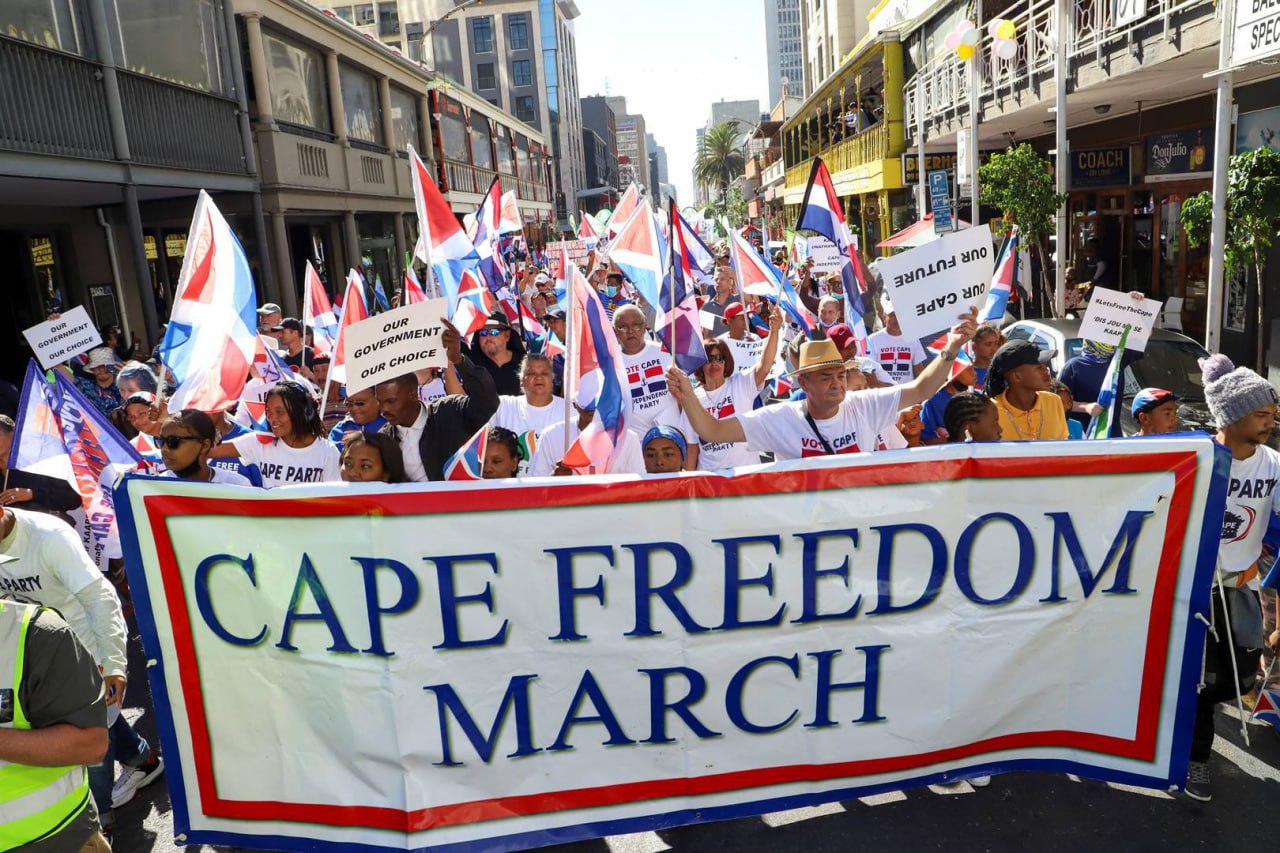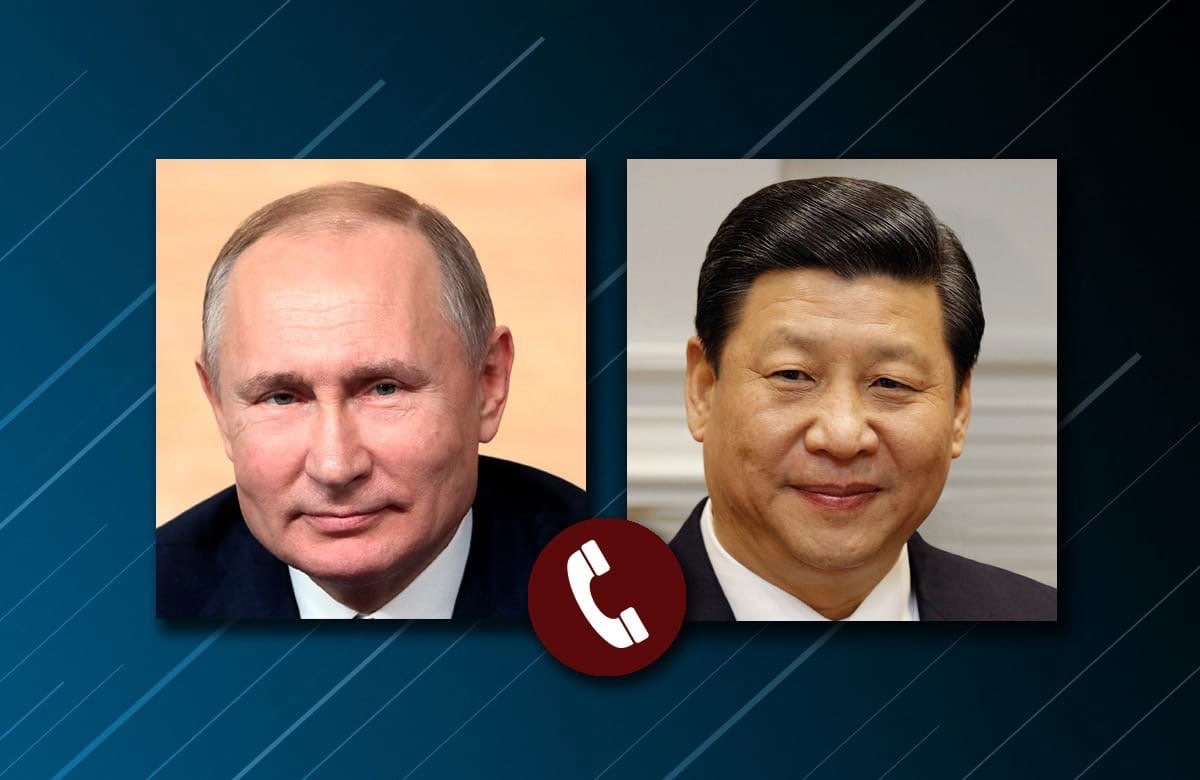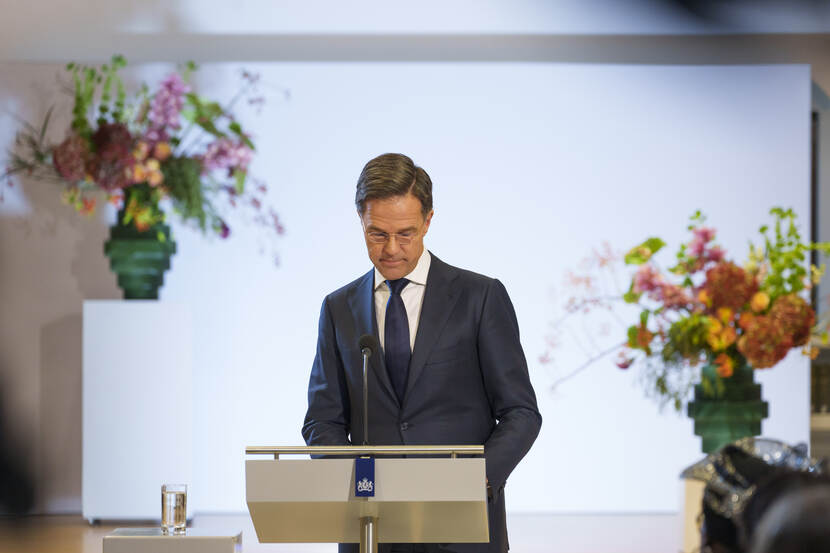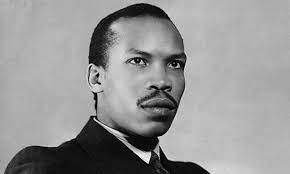
Cape independence march
By Mafa Kwanisai Mafa
The Cape Independence Advocacy Group (CIAG)’s decision to seek United States backing for Western Cape secession is nothing short of a neo-colonial betrayal.
It is a move that seeks to reverse the gains of South Africa’s liberation struggle and plays directly into the hands of imperialist forces that have long sought to weaken and divide Africa.

For Pan-Africanists, anti-imperialists, and all who uphold the vision of a free and united Africa, this attempt must be resisted at all costs.
Historical Context: Colonialism, Land Theft, and Apartheid
South Africa’s history is one of brutal colonial conquest, dispossession, and systemic oppression.
The Western Cape was one of the first regions to be colonized, with Dutch settlers arriving in 1652 under the Dutch East India Company.
This marked the beginning of land dispossession as indigenous Khoisan communities were pushed out and enslaved.
The arrival of the British in the early 19th century further entrenched white supremacy and capitalist exploitation.
With the formation of the Union of South Africa in 1910, black South Africans were completely disenfranchised.
The 1913 Land Act institutionalized land theft, barring Africans from owning land in most of the country.
This laid the groundwork for apartheid, officially implemented in 1948, which further solidified white economic dominance, racial segregation, and black disenfranchisement.
The Struggle for Liberation and the Unfinished Business
The struggle against apartheid was not just about civil rights but about economic liberation and land justice.
The African National Congress (ANC), Pan-Africanist Congress (PAC), and Black Consciousness Movement (BCM), led by figures like Steve Biko, Robert Sobukwe, and Nelson Mandela, fought against the apartheid regime to build a truly free and just society.
Steve Biko famously declared:
“The most potent weapon in the hands of the oppressor is the mind of the oppressed.”
This statement resonates deeply in today’s context, where neoliberal policies, racialized economic inequalities, and foreign influence continue to shape South Africa.
The 1994 democratic transition, while a historic achievement, left much of the economic structure of apartheid intact.
Afrikaners and a powerful Jewish business elite continue to dominate key sectors of the economy, maintaining an economic stranglehold over the majority black population.
Racism, Economic Control, and the Facade of Democracy
Post-apartheid South Africa remains deeply unequal. The Western Cape, where the CIAG seeks secession, is often presented as a “successful province,” but its success is built on racialized economic exclusion.
Black South Africans in the province face economic marginalization, land dispossession, and systematic exclusion from decision-making structures.
The city of Cape Town remains one of the most segregated in the country, with wealth still concentrated in the hands of the white elite.
Moreover, the neoliberal economic policies pursued by the post-apartheid government have only reinforced structural inequalities.
The failure to implement radical economic transformation has led to rampant unemployment, landlessness, and poverty among the black majority, while multinational corporations and white capitalists continue to thrive.
The CIAG’s campaign for Western Cape independence is an attempt to solidify this racial and economic divide under the guise of self-determination.
The US and Western Meddling: Divide, Destabilize, Dominate
The CIAG’s decision to lobby the United States government for support exposes the real agenda behind Western Cape secession—foreign interference disguised as democracy.
This is not new. The West has a long history of balkanizing African nations to weaken them, ensuring continued economic dependency and geopolitical control.
Kwame Nkrumah, the father of Pan-Africanism, warned:
“Neo-colonialism is the worst form of imperialism. For those who practice it, it means power without responsibility, and for those who suffer from it, it means exploitation without redress.”
From the division of Sudan to the NATO-led destruction of Libya, the imperialist strategy has always been to divide, destabilize, and dominate. The CIAG’s alignment with Washington is nothing more than a continuation of this neo-colonial playbook.
Pan-African Unity is Non-Negotiable
South Africa’s unity is non-negotiable. The liberation struggle was waged by people from all provinces, and the country belongs to all who fought for its freedom. Western Cape is in South Africa, and South Africa is indivisible.
Julius Nyerere, one of Africa’s greatest statesmen, reminded us:
“Unity will not make us rich, but it can make it difficult for Africa and the African peoples to be disregarded and humiliated.”
To allow the Western Cape to secede would set a dangerous precedent for other African nations, giving imperialist forces greater leverage to sow division, pit ethnic groups against each other, and ultimately maintain control over Africa’s vast resources.
Why CIAG Must Be Resisted at All Costs
The CIAG must be unequivocally opposed by all progressive forces in South Africa and across the continent for the following reasons:
It serves imperialist interests. Seeking US support confirms this is not about democracy but foreign interference and control.
It reinforces racial and economic apartheid. Western Cape secession would protect white economic privilege while further marginalizing the black majority.
It undermines the sacrifices of the liberation struggle. Countless South Africans died for a free and united country; allowing secession would be a betrayal of their legacy.
It weakens Africa’s sovereignty. If successful, this would embolden other Western-backed separatist movements across the continent, threatening African unity.
It is based on a false narrative. The CIAG claims that the Western Cape would function better independently, yet the province’s success is built on exclusion and apartheid-era wealth structures.
Conclusion: Defend Africa’s Sovereignty, Reject Secessionist Agendas
South Africans, Pan-Africanists, and all anti-imperialists must stand firm against this treasonous scheme. The Cape Independence Advocacy Group is not fighting for justice or democracy—it is advancing a reactionary, racist, and imperialist agenda that seeks to reverse the hard-won gains of liberation.
We must reject any Western-backed plot to fracture our continent for imperialist gain. South Africa’s future will be decided by South Africans, not by foreign powers or their local collaborators.
The words of Thomas Sankara remain a guiding light:
“Imperialism is inhuman, and no compromise is possible with inhumanity.”
The struggle for true freedom continues. Hands off South Africa! No to Cape Secession! Forward with African unity!









